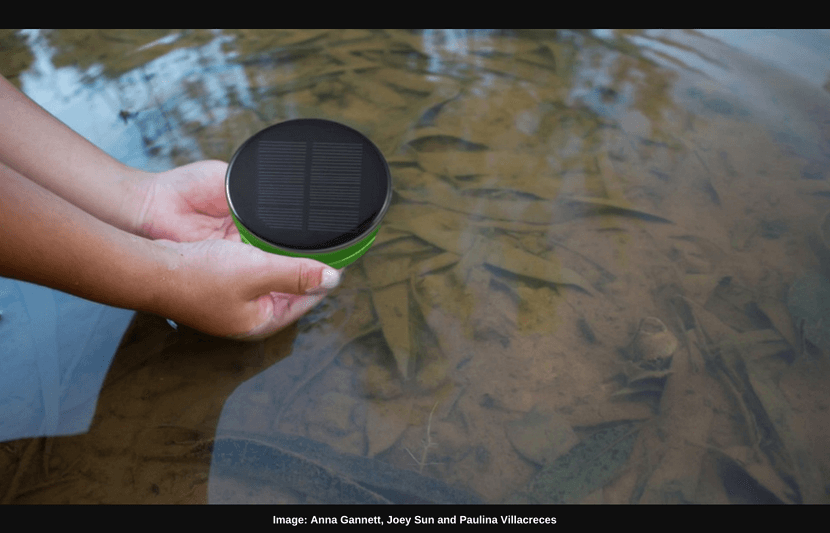Three Cornell student researchers have won a global competition with their UPod, an eco-friendly and low cost mosquito-control device that functions like a carnivorous plant.
The UPod was selected as one of eight project winners — out of more than 60 teams from 16 countries that entered this year’s competition — of the Biomimicry Institute’s Global Design Challenge, an international design competition that invites innovators to biomimic, or look to nature for design inspiration, to develop solutions to climate change.
The team consisted of graduate students Anna Gannett, Joey Sun and Paulina Villacrece, who were advised by Kathleen Gibson, an associate professor from the Department of Design and Environmental Analysis in the College of Human Ecology.
Climate change and mosquito-borne diseases
In the blazing summer of 2016, Zika, one of many mosquito-borne diseases, was no longer a problem just for some third world countries, but also right in the American soil.
The U.S. Center of Disease Control and Prevention (CDC) reported the first four local transmissions of Zika in the country in downtown Miami, Florida.
The CDC has tracked up to 5,716 Zika cases in the 50 states and the District of Columbia and 37,262 Zika cases in the U.S. territories.
Although its symptoms are mild to most individuals, Zika infection in pregnant women can cause a birth defect in newborns, characterized by abnormally small heads and brain damage. Plus, in rare cases, Zika can also cause temporary paralysis in adults.
Along with Zika, many mosquito-borne illnesses, such as malaria, dengue and yellow fever, cause millions of deaths every year worldwide, and more than half of the world’s population still live in areas at risk of an infection.
As current mosquito-control strategies are expensive, reactionary and actually harmful to people and the environment, the ever-rising temperature and precipitation due to climate change are only making things better for mosquitoes to expand exponentially.
Inspired by nature
Realizing that current strategies are ineffective and unnatural, the Cornell student team wondered how nature is taking care of its increasing mosquito population.
“To address these complex and interrelated issues, we started at the local level by seeing how the natural world regulates insect populations. We were inspired by a type of carnivorous plant known by the common name ‘bladderwort,’ ” said Gannett, Sun and Villacreces.
Bladderwort lives in lakes, streams and waterlogged soils, and creates a water vacuum through its trap bladders by pumping water out and sucking in small insect prey in the blink of an eye.
Like its muse, the solar-powered UPod pulls water and larvae (baby insects) into a tightly-sealed water chamber through a trap door that functions through a smart sensor mechanism.
Larvae are suffocated in the water chamber and then pumped out as new water and larvae are pulled in.
Unlike other methods that are mostly reactionary, the UPod can prevent mosquitoes from overpopulating starting in their very habitats.
Also, the UPod is environmentally friendly, self-sustaining, reusable and affordable.
Now, the markets
The researchers are looking forward to the next stage of the competition — the 2018-19 Biomimicry Launchpad, an accelerator that supports commercialization — to help bring their innovation to the market.
They are eligible to win the $100,000 Ray C. Anderson Foundation Ray of Hope Prize.
“We have a lot more product development steps to take before UPod becomes available for purchase,” Gannett, Sun and Villacreces said.
“We are aiming to have a working prototype by early next year. From there, we will begin marketing our product to those who need it most, including countries suffering from mosquito-borne illnesses.”
The team is currently researching the mosquito control market to check out competing products that already exist and understand how the UPod will contribute to a unique sector of the industry.
“It is important to understand UPod’s audience and how it will positively contribute to the industry, not just flood the market,” said Gannett, Sun and Villacreces.
“The biomimicry process extends beyond the initial stage of idea development and into the business strategy.”



